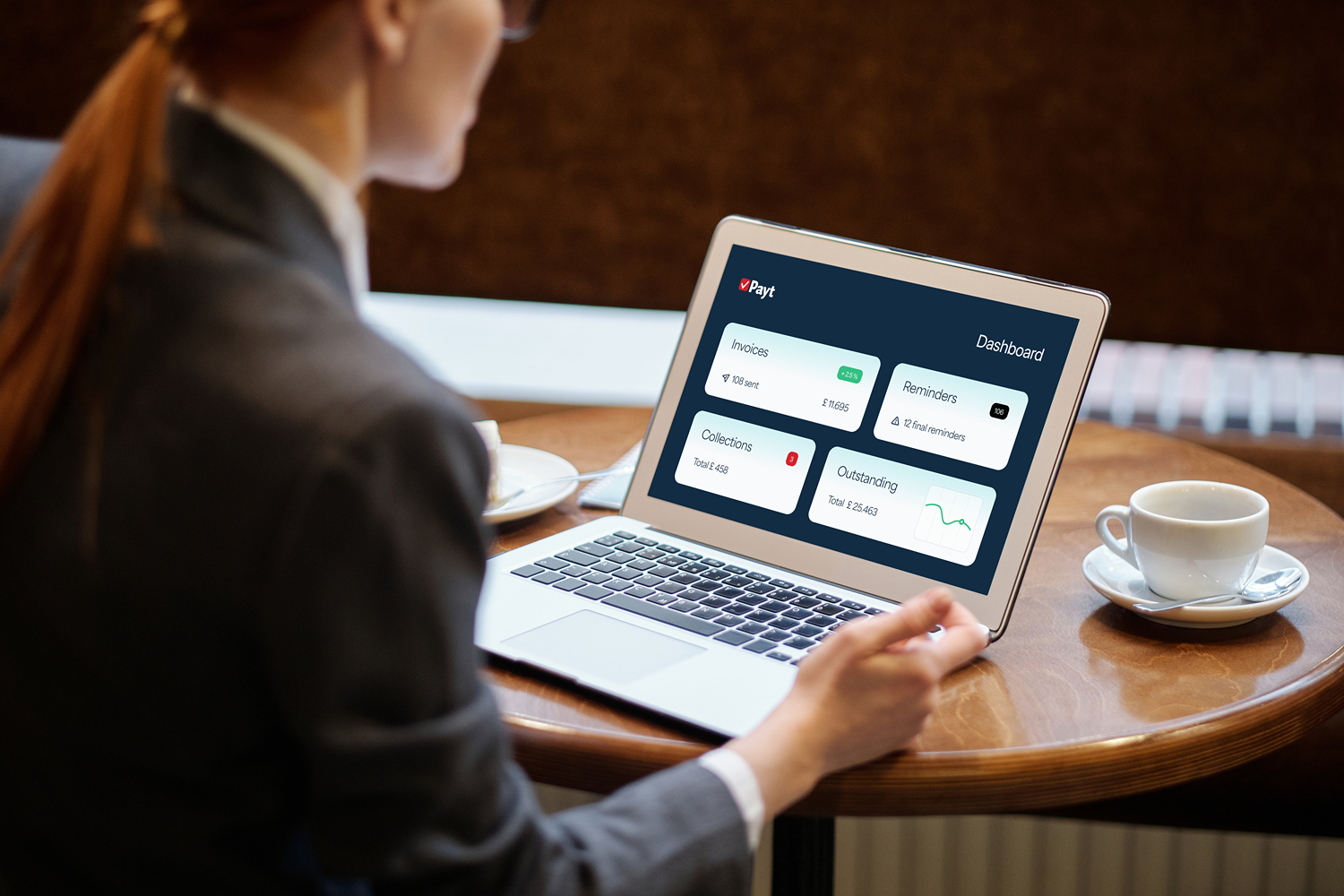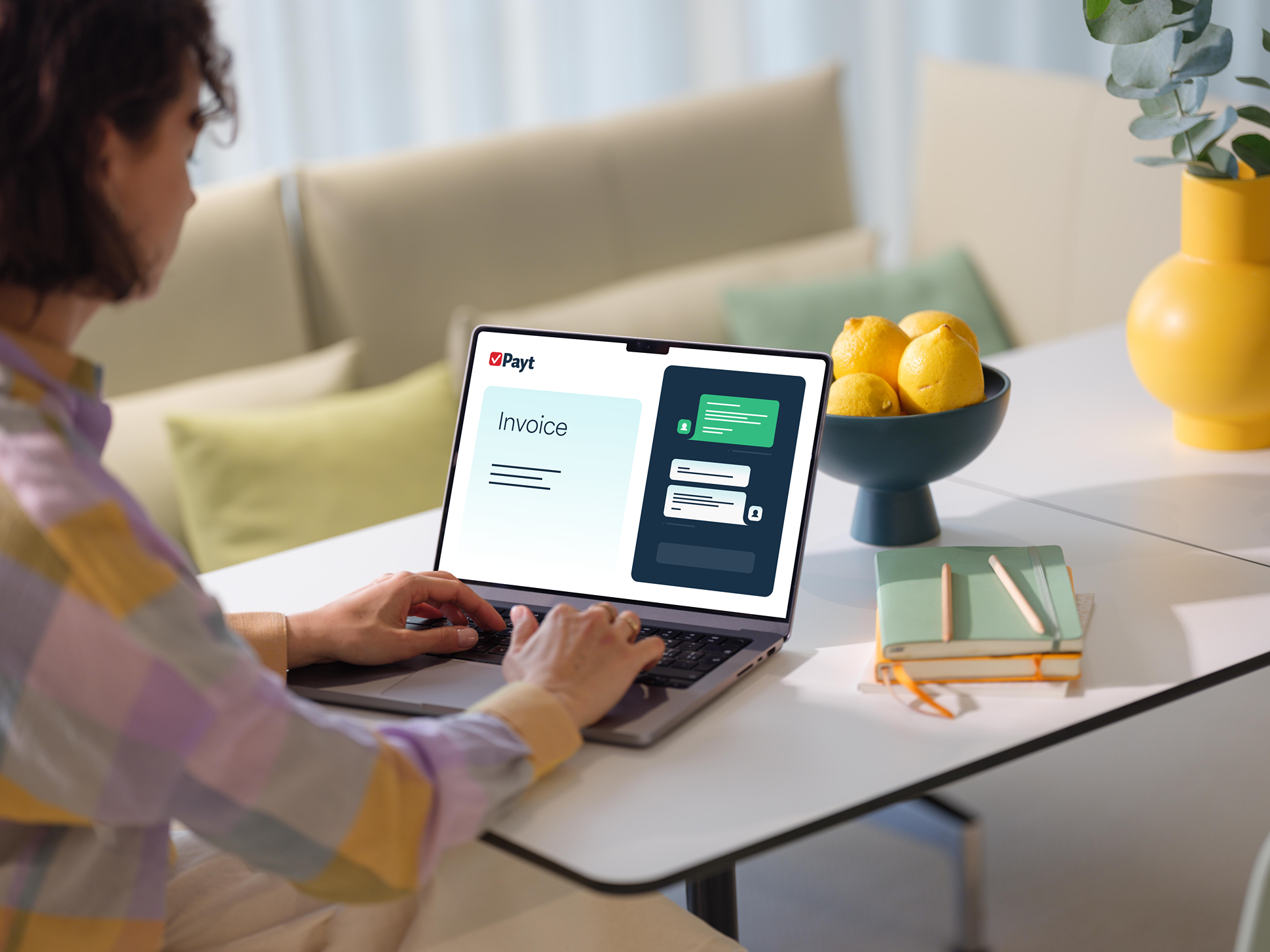Where Google is a term for search engines, Quooker is that for boiling water taps. Quooker was founded in 1987 by physicist Henri Peteri and is now a well-known name in many Dutch kitchens, as well as in an increasing number of foreign kitchens. With a rapidly growing turnover, the need for more consistent and efficient credit management also increased. In this interview, I talk to Jesse van Hofwegen, business analyst at Quooker, about the background of the automation of their credit management, the implementation of the debtor management platform Payt, and the results achieved.
Can you tell us a bit more about yourself?
Jesse: “After studying Business Administration and Business Information Management at Erasmus University in Rotterdam, I started as an IT Auditor at Ernst & Young. Since 2018, I have been working at Quooker as a business analyst. In that role, I look broadly at our business processes, including marketing, sales, service, finance, logistics, and production. My primary task is to improve and/or make these processes more efficient. Often this involves the implementation of software or the expansion of an existing software package. That’s how I came into contact with Payt software. Together with the Business Information Management team (BIM) and Bert-Jan Walters from Payt, we implemented this credit management software application. For this, we worked closely with the finance department to map out their needs well.”
What does Quooker do?
Jesse: “Quooker produces boiling water taps and boilers and sells them both within and outside the Netherlands. Our production facility is located in Ridderkerk. In Europe, we export our products to the United Kingdom, Germany, Belgium, Switzerland, Austria, Scandinavia, and Italy, among others. Outside Europe, we are active in the United Arab Emirates and Hong Kong, among others. We aim to enter a new country or market every year. We do not sell our products directly to consumers, but to companies such as kitchen specialty stores. However, we do provide service directly to the consumer/end user. So we send invoices to companies and consumers, both electronically and by post.
What did the order to cash (O2C) process at Quooker look like before you started working with Payt?
Jesse: “We used – and still use – Exact Globe as an ERP system. Sales and service orders were entered into the system, after which delivery to the customer took place. As soon as a delivery was on its way to the customer, an invoice was automatically sent by email or by post if no email address was known. Once a week, a printout was made of all outstanding items, where it was manually checked which customers (debtors) we needed to send a reminder to. The reminders were only sent by post. However, the follow-up was not always consistent, partly depending on who was handling a file and which kitchen specialty store or consumer it concerned. In general, deliveries on account took place, with 30 days net being the norm. Only orders placed through our webshop are paid directly by the customer.”
What prompted you to consider automating the order to cash process?
Jesse: “As I mentioned, we used to send an email with an invoice as an attachment (PDF). Initially, we just wanted to make the payment process easier for the customer by adding a payment link. This way, customers would no longer have to manually process all payment and invoice information. We then tasked our (permanent) team of business administration students with finding out which companies could provide such a payment link. We eventually came up with two parties, including Payt. During a presentation by Payt at our office, we discovered that much more was possible with their software solution. The way credit management automation can be set up in Payt and the handy overviews on the platform appealed to us and the Finance team enormously. Additionally, there was an immediate good connection, which is why we ultimately chose Payt.”
How did the implementation go? What were your experiences/lessons learned?
Jesse: “The implementation went very smoothly, but we did overlook something. Initially, we only wanted to send our invoices via Payt. We wanted to continue doing the reminders ourselves, not through the Payt platform. However, during the setup, we forgot to uncheck the reminders, so during the first run, all reminders were sent out along with all invoices at once. In hindsight, it turned out to be a blessing in disguise because after sending all the reminders, the money literally started flowing in. It turned out there were also some very old items that were suddenly paid after this unplanned action. It did lead to a lot of phone calls and email traffic, but this experience was a reason for us to enable the automatic sending of reminders during the (phased) rollout to other countries.
The main lesson we learned from this is that you need to have everything in your basic administration (Exact) in order before you start working with a system like Payt. And of course, it is also important to stay focused during the setup and pay close attention to details.”
Which functionalities are currently used the most and can you tell us about the results achieved so far?
Jesse: “Our initial goal was to be able to send a payment link, and we absolutely succeeded in that. With the broader use of Payt, our workload has become much lower because many manual tasks have been eliminated. Moreover, we now have a complete overview at any time of the number of outstanding reminders, divided into different phases of the reminder process. In fact, the entire reminder process is now fully automated. Only the engagement of a collection agency or bailiff is still assessed by us on an individual basis.
Workflows
In Payt, there is the possibility to set up workflows. For example, the payment terms are stored in Exact, which are imported 1 to 1 into Payt. Based on these payment terms, a specific workflow (IF THEN) is linked to the invoice and debtor. The use of workflows has had a great positive impact on the consistency of our working method and, of course, also the efficiency of the entire O2C process. Before we started working with Payt, there was quite a bit of variation in our working method, sometimes also depending on the employee handling a file. That is now a thing of the past, with customer-related O2C processes structured according to predefined protocols (workflows). Specific agreements with the customer can also be stored in the system.
Internal communication
What is also very handy is that we can now have internal communication about a specific invoice within the system, instead of sending each other internal emails outside the application. Finance can now, for example, ask a question about an invoice to customer service via Payt, and an answer can then be sent back via the Payt platform. Specific questions automatically appear in a task list generated by Payt for the relevant employee, who must of course have access to the customer’s file. This keeps the customer’s file complete, and any authorized employee can immediately see what has been communicated (internally) and what the current status is. This has greatly increased efficiency, and it is also pleasant for customers.”
How was the reaction from your customers?
Jesse: “So far, we do not specifically measure customer experience and satisfaction within the order to cash process. I can share a nice experience. About three weeks after we went live with Payt and started sending invoices with a payment link, a customer called our office. She wanted to speak to someone in charge of payments. Through the attached link, you as a customer get a clear overview of all outstanding invoices and can also pay them immediately (electronically). She was so enthusiastic about the layout and functionality of our new reminders that she wanted to use it for her own company and wanted to know which provider we had used. I can imagine there may be more customers who have had the same experience. But we have not investigated that.”
What does the future of credit management at Quooker look like? Are there any specific areas you want to focus on or improve?
Jesse: “In terms of functionalities, we are currently well-equipped. For the coming period, the rollout to different countries is on our roadmap. We initially started with the Netherlands and then the United Kingdom, as these are our largest markets with the most invoices. We are also live in the United Arab Emirates and recently in Ireland. We expect to go live soon in Hong Kong, and we are working on the setup in Italy. We have consciously chosen a phased rollout, which we actually do with every (software) system. The reason for this also has to do with Exact, as each country in this ERP package is a separate administration. Moreover, in the Emirates, for example, we have different payment terms than in the Netherlands. Additionally, each country always involves specific training and onboarding. To keep the workload and pressure manageable, we find it wise not to connect all countries to Payt at once, which would require support for all those countries at once. We therefore prefer a slightly slower but well-manageable and controllable phased rollout of Payt.”
Payt is a gold sponsor of Credit Expo 2021, which will take place this year on Thursday, October 28, at the 1931 Congress Center in ‘s-Hertogenbosch. If you want to learn more about Payt and meet in person, visit stand number 20. If you want to learn more about the workings of Payt’s debtor platform, visit their (product) presentation at 1:00 PM in room Dexter 19, Congress Center 1931. Click here to register for a visit to Credit Expo (free entry if you belong to the target audience).
Source: Credit Expo / Payt
Author: Marcel Wiedenbrugge




